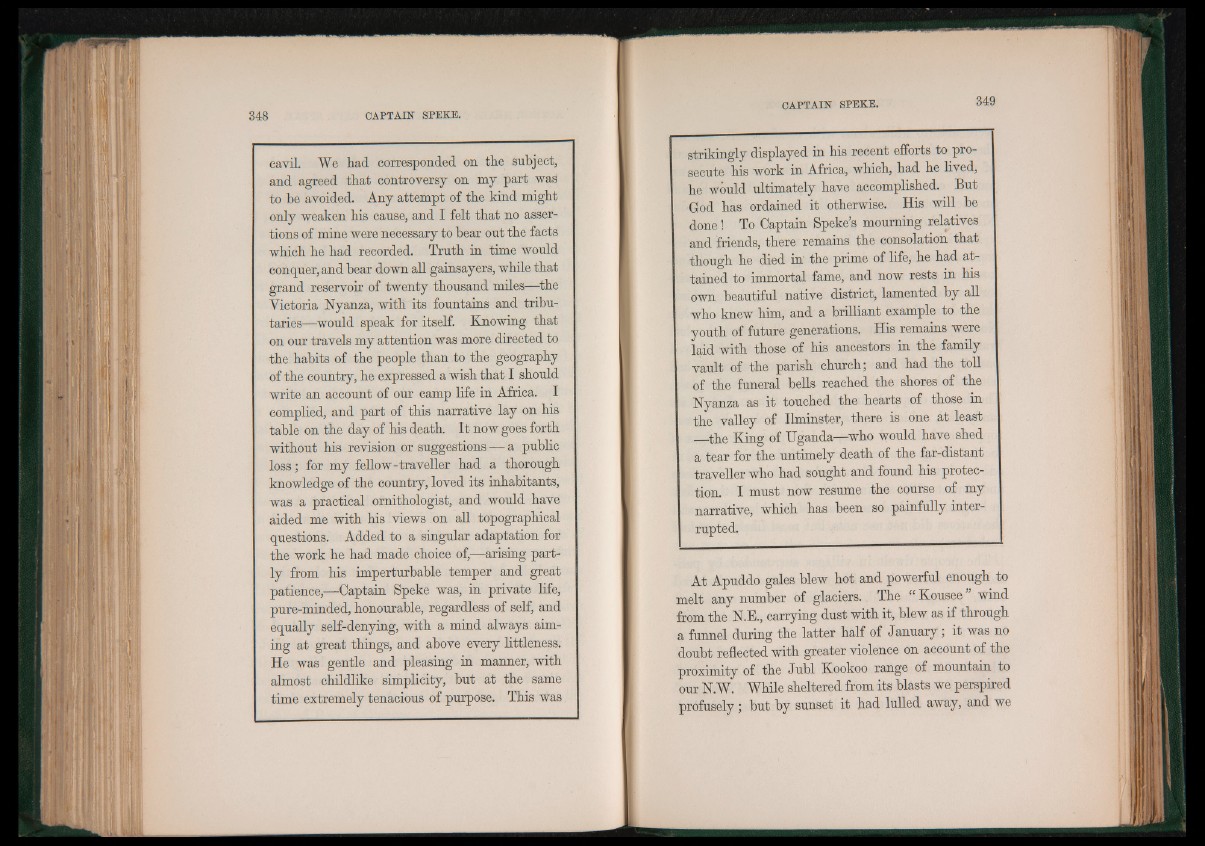
cavil. We had corresponded on the subject,
and agreed that controversy on my part was
to be avoided. Any attempt of the kind might
only weaken his cause, and I felt that no assertions
of mine were necessary to bear out the facts
which he had recorded. Truth in time would
conquer, and bear down all gainsayers, while that
grand reservoir of twenty thousand miles—the
Victoria Nyanza, with its fountains and tributaries—
would speak for itself. Knowing that
on our travels my attention was more directed to
the habits of the people than to the geography
of the country, he expressed a wish that I should
write an account of our camp life in Africa. I
complied, and part of this narrative lay on his
table on the day of his death. I t now goes forth
without his revision or suggestions — a public
loss; for my fellow-traveller had a thorough
knowledge of the country, loved its inhabitants,
was a practical ornithologist, and would have
aided me with his views on all topographical
questions. Added to a singular adaptation for
the work he had made choice of,—arising partly
from his imperturbable temper and great
patience,—Captain Speke was, in private life,
pure-minded, honourable, regardless of self, and
equally self-denying, with a mind always aiming
at great things, and above every littleness.
He was gentle and pleasing in manner, with
almost childlike simplicity, but at the same
time extremely tenacious of purpose. This was
strikingly displayed in his recent efforts to prosecute
his work in Africa, which, had he lived,
he would ultimately have accomplished. But
God has ordained it otherwise. His will be
done! To Captain Speke’s mourning relatives
and friends, there remains the consolation that
though he died in' the prime of life, he had attained
to immortal fame, and now rests in his
own beautiful native district, lamented by all
who knew him, and a brilliant example to the
youth of future generations. His remains were
laid with those of his ancestors in the family
vault of the parish church; and had the toll
of the funeral bells reached the shores of the
Nyanza as it touched the hearts of those in
the valley of Ilminster, there is one at least
the King of Uganda—who would have shed
a tear for the untimely death of the far-distant
traveller who had sought and found his protection.
I must now resume the course of my
narrative, which has been so painfully interrupted.
At Apuddo gales blew hot and powerful enough to
melt any number of glaciers. The § Kousee ” wind
from the N.E., carrying dust with it, blew as if through
a funnel during the latter half of January; it was no
doubt reflected with greater violence on account of the
proximity of the Jubl Kookoo range of mountain to
our N.W. While sheltered from its blasts we perspired
profusely ; but by sunset it had lulled away, and we